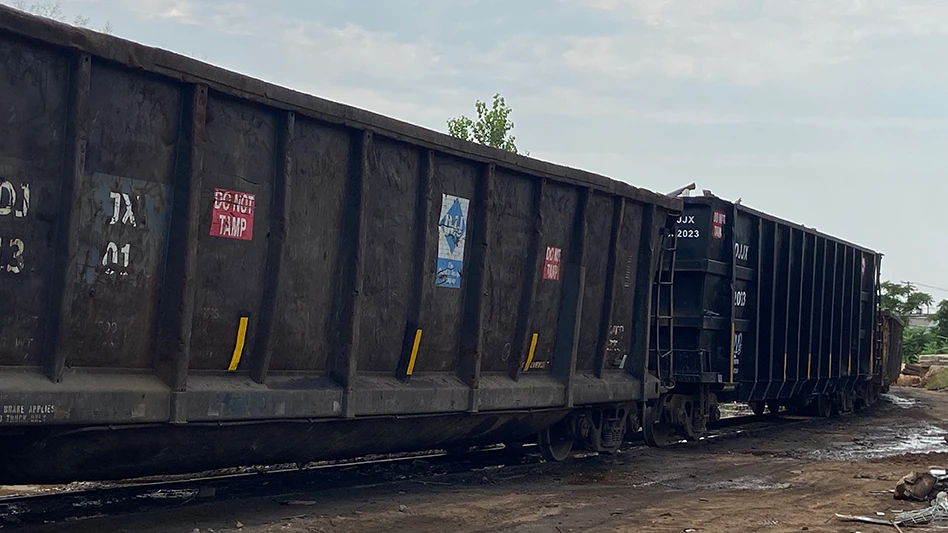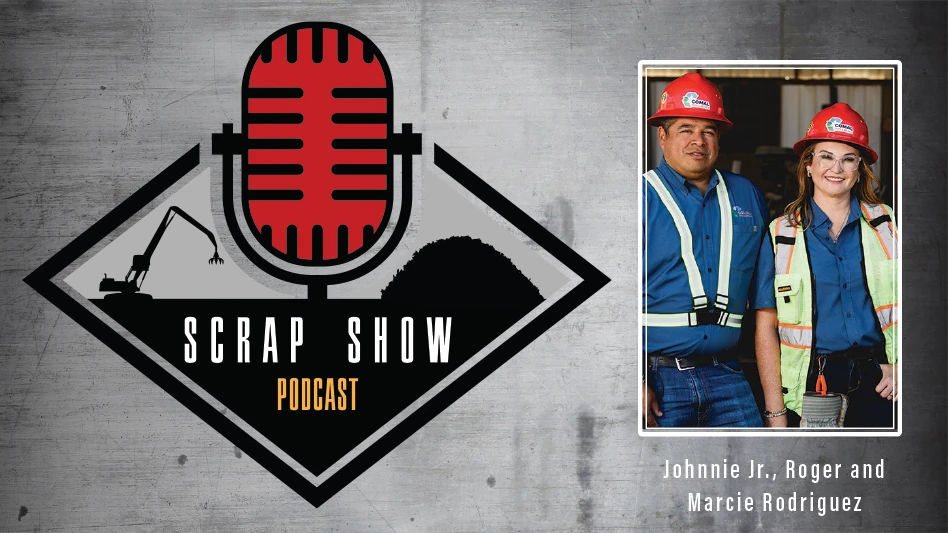
Recycling Today archives
As a strike by the United Auto Workers lingers and spreads in the automotive sector, the Biden administration has announced $1.4 billion in rail-related infrastructure spending approved by the U.S. Department of Transportation (DOT).
The DOT’s Federal Railroad Administration (FRA) has identified more than 70 rail improvement projects in 35 states and Washington worth $1.4 billion in spending tied to the Bipartisan Infrastructure Law.
The projects are likely to involve the use of steel and concrete as well as the generation of scrap metal and concrete for crushing and recycling.
“This is the largest amount ever awarded for rail safety and rail supply chain upgrades through the Consolidated Rail Infrastructure and Safety Improvements (CRISI) program,” a White House news release says.
On the freight rail front, the White House adds, “Selected projects also improve connectivity, reduce shipping costs, increase resiliency to extreme weather, reduce emissions and support workforce development.”
“We are making historic investments in rail, which means fewer accidents and delays, faster travel times, and lower shipping costs for the American people,” DOT Secretary Pete Buttigieg says. “These projects will make American rail safer, more reliable, and more resilient delivering tangible benefits to dozens of communities where railroads are located, and strengthening supply chains for the entire country.”
Among the projects underway and being planned is one spanning Alabama, Louisiana and Mississippi that will see some $178 million in federal funding going to Amtrak for a Gulf Coast Corridor Improvement Project, designed to restore passenger service in a region that has not had access to it since Hurricane Katrina in 2005.
Track, signal, grade crossing and station improvements should allow Amtrak to add two new daily round trips between New Orleans and Mobile, Alabama. The project also will help maintain reliable freight operations along a line used by CSX Transportation and Norfolk Southern Railway involving service to and from the Port of Mobile.
In eastern Washington state, nearly $73 million in funding will be spent on the Palouse River & Coulee City Railroad (PCC), which the DOT calls “vital to the wheat supply chain.”
Nearly $24 million in funding will go to the Tennessee Short Line Railroads Bridge Bundle Project and work involving upgrading approximately 42 bridges along 10 different short line railroads. In neighboring Kentucky, more than $29 million in federal funding will make improvements along Paducah and Louisville Railway’s 280-mile main line, including upgrading multiple bridges, rehabilitating locomotives and improving track in a local freight rail yard.
In Ohio, more than $16 million will be spent to rehabilitate bridges and make several track-related improvements along approximately 180 miles of the Kanawha River Railroad (KNWA) in the southern part of the state. “The project will allow for increased speeds while improving safety, reliability, and capacity on a rail line that moves needed goods, including chemicals and hazardous materials, in rural areas of West Virginia and Ohio,” the White House says.
Battery electric locomotives and a battery charger at the Port of Baltimore are in the offing in Maryland, where some $11.5 million will entail replacing three older, higher-emission locomotives, benefiting shippers, port employees and nearby communities by decreasing air emissions and noise, the DOT says.
The full list of fiscal year 2022 CRISI projects is available here.
Latest from Recycling Today
- Commentary: Bridging the gap to a sustainable future
- UK’s Renewi targeted by Macquarie Infrastructure
- Hydro cites recycling as 2024 growth driver
- The impacts of the nation’s first textiles EPR law
- Smurfit Westrock launches new packaging to address EU regulation
- ArcelorMittal wins legal round in GFG dispute
- Real Alloys partners with Enviri on residuals diversion project
- Registration Now Open for C&D World 2025





